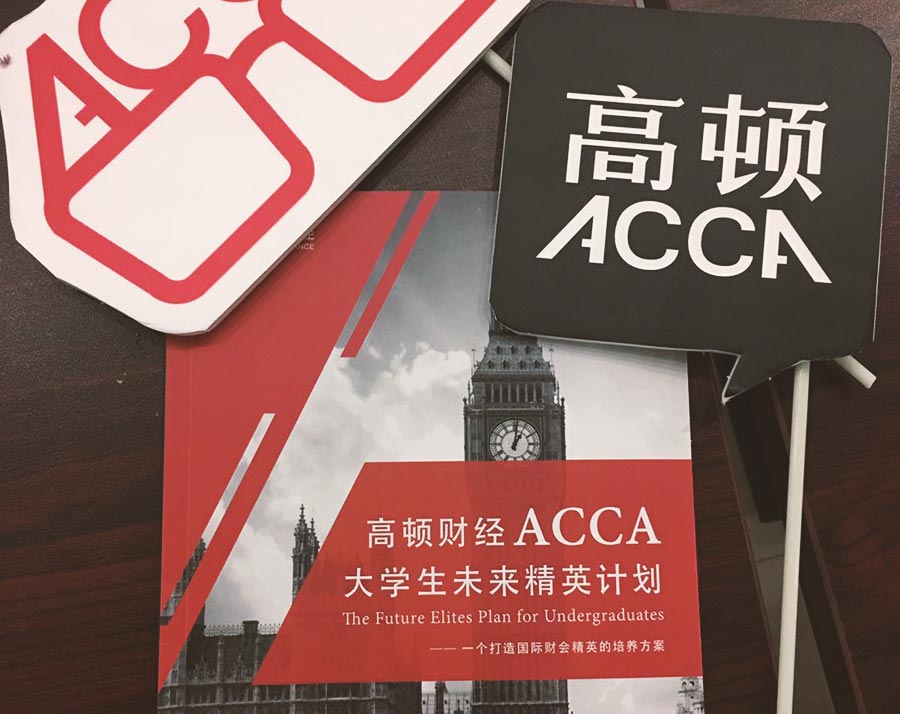
2017年6月ACCA考试科目F9和P4的ExamTips回顾!
- 2018年06月05日
- 18:06
- 来源:opentuition
- 阅读:(139)
2023ACCA备考资料
- 财务英语入门
- 历年考题答案
- 2023考纲白皮书
- 2023考前冲刺资料
- 高顿内部名师讲义
- 高顿内部在线题库
摘要:2017年6月ACCA考试科目F9《财务管理》和P4《高级财务管理》的ExamTips回顾!...

Kaplan
Part A:MCQs will be from any syllabus area.
Part B:Some frequently tested areas in the past were
NPV with Inflation and Taxation
Cash operating cycle
Receivable,Payable&Inventory Management
Financial Gearing
Cost of Equity&Debt
WACC
CAPM&MM
Foreign Exchange Risk Management
Interest Rate Risk Management
Sources of Finance
Don’t just keep focusing on numbers.Although the numbers are important but approximately half of the marks are for the written elements.Prepare every topic thoroughly to increase chances of passing the exam.
Bpp
Section A:
15 multiple choice questions worth 2 marks each.The MCQs will largely be knowledge based and will balance out the questions in Section B and C of the exam to make sure that all aspects of the syllabus are examined.It is likely that some of the MCQs will test your understanding of financial management and objectives(ratio analysis,the concept of shareholder wealth)as well as the economic environment and financial institutions topics(financial intermediation,fiscal and monetary policies)。The efficient market hypothesis is likely to be tested here too.
But bear in mind that the whole point of setting MCQs is to test good coverage of the syllabus in the exam.
Section B:
Three 10 mark mini case-studies.Each case-study will be broken down into 5 separate 2 mark multiple choice questions(so 15 questions in total)。
Areas expected to be tested in this section are working capital management(e.g.the operating cycle,the impact of a change in credit period or accepting a factor’s offer),business or security valuations(e.g.methods of valuation),and financial risk management(most likely mainly in the form of currency risk but it is possible that an aspect of interest rate risk is examined here)
Section C:
Two 20 mark questions which will be broken down into sub requirements and be scenario based.These two questions will focus mainly on syllabus sections C,D and E.
Section C is working capital management,section D is investment appraisal and is likely to feature NPV with inflation and tax.Section E is business finance;either an evaluation of financing options(interest coverage and gearing ratios are likely to be important here)or a cost of capital calculation are most likely.Whichever of these three topics does not feature in section C is likely to appear in section B of the exam.
ACCA P4 Exam Tips June 2017:
Kaplan
P4 is a technical paper with some complex calculations sometimes but DO NOT think of the exam as numbers-only.There are plenty of discursive parts which are usually easier than the calculations and easy marks can be picked up by applying commercial awareness and common sense.
Analyse the individual requirements of the question.If you can do the wordy bits first then do so as you will not get bogged down in them like you will with the calculation elements.
Do not expect to finish a question.You must stick to time,especially on the calculations which are very easy to over-run on.The exam is extremely time pressured and the secret to passing is to have a go at every part of every question,not to try and get 100%on every question–to do that you would need about 7 hours!
If you are not sure what to do with a particular figure in a question,ignore it and move on–state assumptions,you haven’t got time to worry about it!
If you get a Black-Scholes question,always list out the input variables as your first stage and assign the relevant values to them–there will be about 2-3 marks usually for doing this.
Practice as many questions as possible but do as many as possible to time.You must get used to doing the questions in the time available and not spending too long on them.
Practice as many questions as possible across the syllabus,and don’t only concentrate on what you consider to be the core areas.
Choose carefully on section B of the paper–it is very limited choice but nonetheless it will be critical.
Do not put down unnecessary workings;because as it will cost you heavily in lost time.
If there is a calculation that you are unable to complete–for e.g.a WACC which prevents you from going on to do the NPV,then just make a reasonable assumption and estimate a WACC which you have been unable to calculate,this will then allow you to progress the calculation and get on to the often more generously rewarded discursive parts of the question.
Look out for examinable articles–two in particular for June 2011:
24 August–The new examiner Shishir Malde gives his approach for the P4 paper
23 September–Another article by the new examiner Shishir Malde on Risk Management January/February article
Two key topics are always NPV appraisal and capital structure,particularly CAPM and Betas.You will not pass if that is all you know but you will struggle to pass if you do not know them!
Bpp
Important areas to cover include:
Q1
We would expect section A questions to be mainly based on core syllabus areas such as:
project appraisal(domestic or overseas)and business valuations;both of these areas are likely to include cost of capital calculations.Risk management may also feature as an aspect of this question in a number of different ways e.g.VaR,real options,hedging,risk mapping.
Q2-4
risk management(currency or interest rate)
business re-organisation
real options
General advice:
The 50 mark compulsory question will,inevitably,draw from a number of different syllabus areas.The examiner has said that he does not plan exams by referring to past exams(i.e.checking that the whole syllabus is being tested over the course of a number of examsittings)。
These factors mean that question spotting extremely difficult for this paper.However we would expect section A questions to test core syllabus areas as listed above.
In section B one of the questions may be entirely discussion based(but this is not guaranteed from June 2013),and often involves ethical and general financing issues(e.g.dividend policy)。
Behavioural finance is new to the syllabus from September 2016;the examiner has recently written an article on this area–so it is an important area for you to understand.
Remember that this paper is not a maths exam–in all exam questions the examiner is interested in your ability to communicate well and to give good management advice that relates to the scenario in the question.
Keep checking the ACCA website for articles written by the P4 examiner in the lead up to the exam,these are often tested.An article on currency swaps has recently been published.
小编再送一个考试资料包,可以分享给小伙伴,自提,戳:ACCA资料【新手指南】+内部讲义+解析音频
声明丨本文内容有高顿ACCA小编整理发布,内容来自:opentuition,原著作方:BPP&Kaplan,转载或引用请注明出处。关注微信公众号“高顿ACCA”(gaodunaccac),免费领取2017年**的ACCA学习资料。
小编再送一个考试资料包,可以分享给小伙伴,自提,戳:ACCA资料【新手指南】+内部讲义+解析音频
声明丨本文内容有高顿ACCA小编整理发布,内容来自:opentuition,原著作方:BPP&Kaplan,转载或引用请注明出处。关注微信公众号“高顿ACCA”(gaodunaccac),免费领取2017年**的ACCA学习资料。
推荐:考生都在用的ACCA资料>>【领取2023ACCA完整资料】 (资料包含ACCA必考点总结,提升备考效率,加分必备)
版权声明:
1、凡本网站注明“来源高顿ACCA”或“来源高顿、ACCA学习帮”,的所有作品,均为本网站合法拥有版权的作品,未经本网站授权,任何媒体、网站、个人不得转载、链接、转帖或以其他方式使用。
2、经本网站合法授权的,应在授权范围内使用,且使用时必须注明“来源高顿ACCA”或“来源高顿、ACCA学习帮”,并不得对作品中出现的“高顿”字样进行删减、替换等。违反上述声明者,本网站将依法追究其法律责任。
3、本网站的部分资料转载自互联网,均尽力标明作者和出处。本网站转载的目的在于传递更多信息,并不意味着赞同其观点或证实其描述,本网站不对其真实性负责。
4、如您认为本网站刊载作品涉及版权等问题,请与本网站联系(邮箱fawu@gaodun.com,电话:021-31587497),本网站核实确认后会尽快予以处理。
急速通关计划
ACCA全球私播课
周末面授班
其他课程
报考指南
2023年ACCA备考机经
价值1288元 考试必备资料 免费领取 高顿ACCA研究院独家出品
价值1288元 考试必备资料 免费领取 高顿ACCA研究院独家出品
领取ACCA资料包
大家都在看
-
阅读(200)
-
阅读(200)
-
阅读(200)
-
阅读(200)
-
阅读(200)
日排行 • 周排行
- 1 ACCA考试中的15分钟阅读时间已经可以动笔了!
- 2 重要丨ACCA 9月考季官方提示:考试时间更新!
- 3 注意啦!2022年9月份ACCA考试有变化!卷面分改革!
- 4 揭秘丨ACCA考试14门科目之间的关系是怎样的?
- 5 专升本可以考ACCA吗?ACCA的考试科目是什么?
- 6 ACCA的注册流程是什么?报名时间有要求吗?
- 7 2019年9月ACCA AA考纲新变动
- 8 IAS 7-现金流量表
- 9 acca免试费过期未付应该怎么处理?
- 10 备考ACCA的大学生都有这些特征!你符合吗?
- 1 ACCAf8机考要打字吗
- 2 ACCAf8机考题型吗
- 3 ACCAf8机考难吗
- 4 ACCAf8机考好考吗
- 5 ACCAf7机考好过吗
- 6 ACCAf8机考有选择吗
- 7 ACCAf8变成了机考吗
- 8 ACCAf6是机考吗
- 9 ACCAf6机考可以带什么
- 10 ACCAf5是机考吗
-
ACCA考试热门词
-
ACCA内部备考资料高顿ACCA为您免费提供2023年全新ACCA资料,包括历年考题、考官报考、考官文章、考纲解析、学霸笔记、内部讲义等,同时还助您了解新学员报名注册指南、机考报考考试引导、OBU&UOL申请攻略等,点击免费获取。
-
- ACCA常见问题
- ACCA推荐阅读
- ACCA考试资讯
- ACCA原创文章
- ACCA学霸分享
- ACCA常见问答










